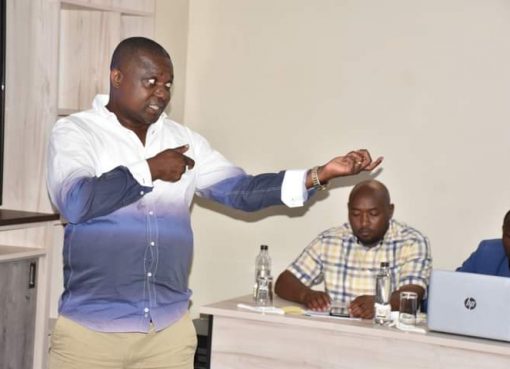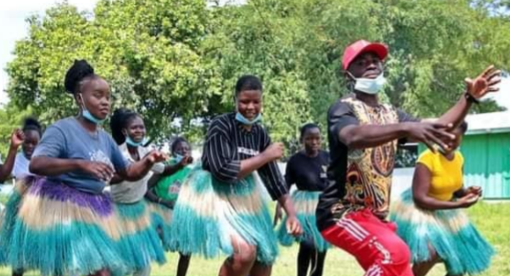GIZ-German has entered into a pact with Marsabit County Government to support programmes in agriculture for enhanced food security and economic growth.
The commitment by GIZ would see 20 acres of land put into irrigation farming in Loglogo ward of Laisamis Sub-County at a cost of Sh.6 million.
GIZ Country Director, Dr. Braun Paul said during the official launch of the irrigation programme in Loglogo ward that the funding would be used to support production of vegetables through irrigation farming by local residents.
Dr. Paul called on the local community who are part of the tripartite agreement that was witnessed by Marsabit governor, Mohamud Ali to embrace it and work hard for the program’s success and sustainability.
The Country Director added that the organization would uphold the collaboration with the County government in efforts to attain food security through its five agricultural potential areas that include, Kinisa, Dakabaricha, Dirib Gombo, and Ngororoi.
GIZ also donated a vehicle to the department of agriculture, livestock and fisheries to facilitate extension outreach services in the vast county, which the country director noted was not ideal to use motorcycles.
The organisation also donated 6 water tanks of 10,000 litres to boost Kinisa irrigation pocket in Moyale, where 11.5 acres is under crop cultivation, and Dakabaricha secondary school in Saku constituency received an assortment of farming tools.
At loglogo where underground water will be used to irrigate vegetables like Sukuma wiki, cabbages, tomatoes, spinach and water melons, two acres will be under drip irrigation, while furrow irrigation would drive the remaining 18 acres.
According to the country director, Germany was backing the Kenya government’s big four agenda with GIZ supporting economic development goals of Marsabit County and five others that include, Kakamega,Turkana and Siaya across the country.
Dr. Paul said the county was expected to achieve a more healthy and balanced nutrition by 2022, besides achieving a transformed economy by making fisheries, agriculture and livestock sectors a more profitable and sustainable way of livelihood.
“It is anticipated that with a transformed economy will greatly contribute in propelling Kenya into a high medium income country by mid- 20’s’, he said.
In his remarks, Governor Ali said once actualized, the irrigation project would among other benefits enhance food security and transform lives by creating sources of income and wealth.
The governor underlined the need to diversify the economic activities of the local communities, who are predominantly livestock keepers to make them self-reliant by cushioning them from the vagaries of weather.
“My government in collaboration with our development partners is working on programmes that will enable this county to produce food, not only for subsistence but with surplus for wealth creation,” he said.
He added that providing an enabling environment for sustained investment was a top priority of his administration, saying it would make the residents more resilient.
Ali said training and awareness creation among the pastoralist communities was being carried out to enable embrace modern farming technology, so much required in irrigation agriculture for high production and returns.
“We are going to tap the irrigation potential that we have in Marsabit county by harnessing water, through dams, boreholes and roof catchments” he said .
He noted that water conservation measures were necessary, owing to the erratic nature of rain, so as to sustain production.
The CEC for agriculture Ms Hawo Shanko said mechanisms had been put in place to ensure that the projects are successful.
She pointed out that by venturing into crop farming for food production, the local communities who have for many years been relying on relief food from the government and other agencies could be self-reliant.
The residents while appreciating the gesture, called on the county government to assist in fencing the farm to ward off livestock and wildlife.
A member of Sirata self-help group,Mrs. Hawo Kochalle said through sensitisation from the government they had realised the need to diversify instead of over relying on livestock which has lately become susceptible to harsh weather.
She disclosed that the project was set to have direct benefit to 83 families.
By Sebastian Miriti





